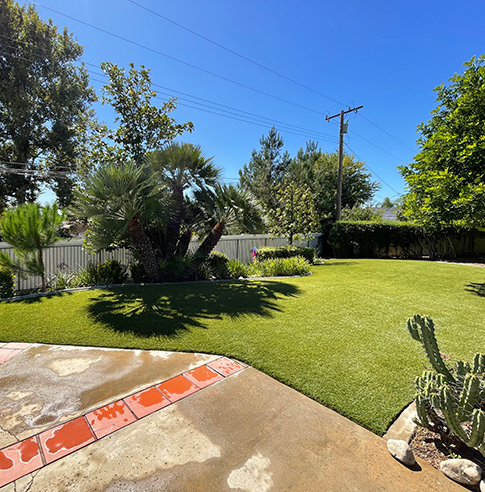Waterless grass, also known as artificial grass made from plastic, offers numerous environmental benefits, making it an eco-friendly alternative to natural grass. Here are some of the key advantages:

Reduced Air Pollution:
- Waterless grass eliminates the need for lawn mowers, reducing air pollution associated with their operation.
- Lawn mowers emit pollutants, and choosing artificial grass helps minimize these harmful emissions.
Lower Carbon Footprint:
- Artificial grass has a lower carbon footprint compared to the ongoing maintenance required for natural grass.
- The production and maintenance processes of waterless grass involve fewer emissions, contributing to environmental sustainability.
Elimination of Harmful Runoff:
- Natural grass lawns often require fertilizers and pesticides, leading to harmful runoff during rainfall.
- Waterless grass eliminates the need for these chemicals, reducing the risk of pollutants entering water bodies and causing environmental harm.
Decreased Smog-Inducing Hydrocarbons:
- Cutting natural grass releases hydrocarbons into the air, contributing to smog and poor air quality.
- Waterless grass doesn't require regular cutting, minimizing the release of smog-inducing substances.
Energy Conservation:
- Artificial grass does not rely on energy-intensive lawn maintenance equipment, such as lawn mowers.
- Choosing waterless grass helps conserve energy and reduces the environmental impact associated with lawn care.
Easy Installation on Hard Surfaces:
- Installing waterless grass is a straightforward process and can be done on various hard surfaces.
- The ease of installation adds to the convenience of choosing artificial grass as an environmentally friendly option.
Less Dependency on Water Resources:
- Natural grass lawns require regular watering, contributing to water consumption and strain on water resources.
- Waterless grass eliminates the need for constant irrigation, promoting water conservation and sustainability.
No Harmful Odors from Cut Grass:
- Cut natural grass can release odors and hydrocarbons into the air, impacting air quality.
- Waterless grass doesn't require mowing, eliminating associated odors and potential harm to the environment.
In summary, waterless grass provides a sustainable and eco-friendly solution for outdoor spaces, offering benefits such as reduced air pollution, lower carbon footprint, and conservation of water and energy resources. Additionally, the installation of artificial grass contributes to a healthier and more environmentally friendly living environment.
